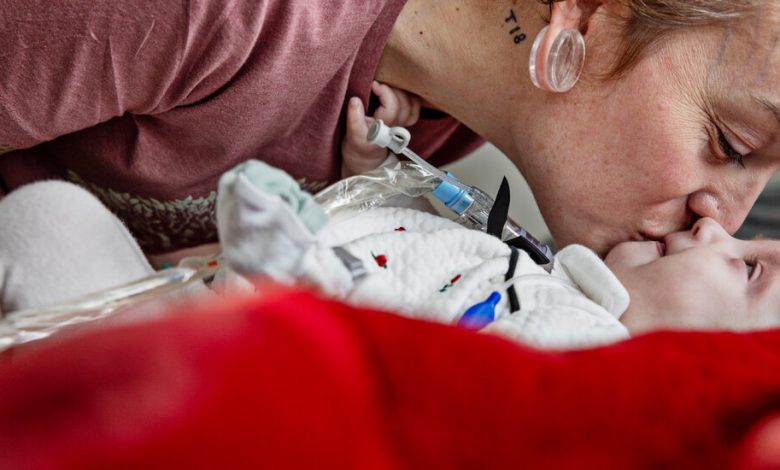‘A Chance to Live’: How 2 Families Faced a Catastrophic Birth Defect

Ashlee Wiseman, a waitress at a Sizzler in Idaho Falls, Idaho, was 10 weeks pregnant when a nurse phoned with crushing news: a test of fetal DNA in her blood had found that her baby girl had trisomy 18, a catastrophic genetic abnormality, and was unlikely to survive.
Devastated, she called her partner, Clint Risenmay, who was at work. He broke down in tears.
Ashlee’s response was different.
“A still small voice took over me,” she said. “I’m like, ‘I’m not going to listen to them. There has to be something that can help her. And there has to be someone who can help.’”
A social media search led her to Dr. John Carey, a professor emeritus of pediatrics at the University of Utah, who has devoted his life to helping families dealing with trisomy 18. He supports pregnant women who chose abortion, but also helps couples who want to have babies with this rare condition, though most will be stillborn or die within a year.
Ashlee and Clint were undeterred. They could do it, they assured Dr. Carey. They would lovingly care for a baby with complex medical needs.
The consequences of trisomy 18 are dire. The babies have three copies of chromosome 18 instead of two and, as a result, have serious medical and developmental problems. Nearly all are unable to eat, walk or talk, and all have severe cognitive disabilities. They often need open-heart surgery and feeding and breathing tubes. Many women, after hearing what is in store, choose abortion.
